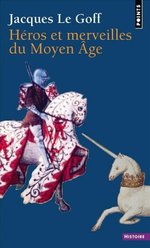bernardina
Moderator
Πέθανε ο Γιώργος Χουρμουζιάδης.
Φαίνεται πως ήρθε η ώρα να πάρει τον δρόμο του μεταξιού*
Ανάμεσα στα πολλά για τα οποία θα τον θυμούνται οι επόμενες γενιές, η μυστηριώδης Πινακίδα του Δισπηλιού
*Δια στόματος του ιδίου:
Γεννήθηκα στη Θεσσαλονίκη και θα ήθελα να πεθάνω στην Κεντρική Ασία, ακριβώς πάνω στο Δρόμο του Μεταξιού. Άρχισα να γράφω από οκτώ χρονώ. Στην αρχή έγραφα κρυφά, προσευχές και βωμολοχίες. Ύστερα εκθέσεις ιδεών, ποιήματα. Αποπειράθηκα να γράψω κι ένα μυθιστόρημα: "Το κορίτσι με τα γκρίζα μαλλιά". Από τότε δε σταμάτησα να γράφω παντού και τα πάντα. Διηγήματα, θεατρικά μονόπρακτα, σενάρια, αρχαιολογικά άρθρα, βιβλιοκρισίες, διαλέξεις, δοκίμια, ευθυμογραφήματα, συστατικές επιστολές, εγκυκλοπαιδικά λήμματα, ανακοινώσεις για επιστημονικά συνέδρια, πολιτικές προκηρύξεις και πολιτικά άρθρα, επιφυλλίδες σε εφημερίδες, στίχους για λαϊκά τραγούδια, χαιρετισμούς για πολιτικές συγκεντρώσεις, ακόμα και για ένα γάμο στο Ασχαμπάτ, όπου με είχανε καλέσει, όταν επισκέφτηκα το Τουρκμενιστάν. Έγραψα εισηγητικές εκθέσεις για διδακτορικές διατριβές και εκλογές καθηγητών, κείμενα διαφημίσεων, "αγορεύσεις" για τη βουλή, κατ' αρχήν και κατ' άρθρον. Έγραψα και δυο επικήδειους, έναν για τον Κίτσο Μακρή και έναν για τον Μανόλη Ανδρόνικο! Και σε έναν τοίχο, όταν ήμουνα πρόσκοπος, έγραψα με μεγάλα κόκκινα γράμματα "Σ' αγαπώ".
Κι όσο περνάει ο καιρός γράφω ασταμάτητα, γιατί εκείνο που θέλω να γράψω δεν το έγραψα ακόμα! Κι όταν πια δεν έχω τι άλλο να γράψω θα πάρω το Δρόμο του Μεταξιού!
Φαίνεται πως ήρθε η ώρα να πάρει τον δρόμο του μεταξιού*
Ανάμεσα στα πολλά για τα οποία θα τον θυμούνται οι επόμενες γενιές, η μυστηριώδης Πινακίδα του Δισπηλιού
*Δια στόματος του ιδίου:
Γεννήθηκα στη Θεσσαλονίκη και θα ήθελα να πεθάνω στην Κεντρική Ασία, ακριβώς πάνω στο Δρόμο του Μεταξιού. Άρχισα να γράφω από οκτώ χρονώ. Στην αρχή έγραφα κρυφά, προσευχές και βωμολοχίες. Ύστερα εκθέσεις ιδεών, ποιήματα. Αποπειράθηκα να γράψω κι ένα μυθιστόρημα: "Το κορίτσι με τα γκρίζα μαλλιά". Από τότε δε σταμάτησα να γράφω παντού και τα πάντα. Διηγήματα, θεατρικά μονόπρακτα, σενάρια, αρχαιολογικά άρθρα, βιβλιοκρισίες, διαλέξεις, δοκίμια, ευθυμογραφήματα, συστατικές επιστολές, εγκυκλοπαιδικά λήμματα, ανακοινώσεις για επιστημονικά συνέδρια, πολιτικές προκηρύξεις και πολιτικά άρθρα, επιφυλλίδες σε εφημερίδες, στίχους για λαϊκά τραγούδια, χαιρετισμούς για πολιτικές συγκεντρώσεις, ακόμα και για ένα γάμο στο Ασχαμπάτ, όπου με είχανε καλέσει, όταν επισκέφτηκα το Τουρκμενιστάν. Έγραψα εισηγητικές εκθέσεις για διδακτορικές διατριβές και εκλογές καθηγητών, κείμενα διαφημίσεων, "αγορεύσεις" για τη βουλή, κατ' αρχήν και κατ' άρθρον. Έγραψα και δυο επικήδειους, έναν για τον Κίτσο Μακρή και έναν για τον Μανόλη Ανδρόνικο! Και σε έναν τοίχο, όταν ήμουνα πρόσκοπος, έγραψα με μεγάλα κόκκινα γράμματα "Σ' αγαπώ".
Κι όσο περνάει ο καιρός γράφω ασταμάτητα, γιατί εκείνο που θέλω να γράψω δεν το έγραψα ακόμα! Κι όταν πια δεν έχω τι άλλο να γράψω θα πάρω το Δρόμο του Μεταξιού!

